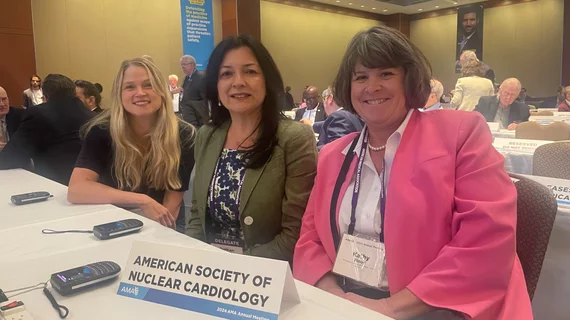ASNC supports AMA effort to limit use of AI in prior authorization decisions
At last week's American Medical Association (AMA) House of Delegates 2024 meeting in Chicago, the AMA adopted a new policy against the use of artificial intelligence (AI) used by insurance companies to deny coverage based on a medical necessity determination. The American Society of Nuclear Cardiology (ASNC) was a big advocate for this change.
“Our priority is making sure patients receive the care they need when they need it. While AI has intriguing potential, it is not a substitute for physician judgment, nor can it have meaningful conversation with patients about their priorities," ASNC President Lawrence Phillips, MD, Director, Nuclear Cardiology Laboratory, Medical Director, Outpatient Clinical Cardiology, NYU Langone, told Cardiovascular Business. "Resolution 202 would require prior authorization requests to be reviewed by a physician of the same specialty. ASNC supported the resolution at the AMA House of Delegates meeting as a step toward ensuring physician judgment and shared decision-making with patients will not be supplanted by AI algorithms."
Resolution 202 would require review of prior authorization requests by a physician in the same specialty or, if the decision does not require physician input, then another appropriate healthcare professional would need to review the request. This follows state-level efforts to rein in insurers' use of AI in coverage decisions. For example, California's Senate Committee on Health recently approved legislation that would mandate physician oversight of decisions made using AI algorithms.
Resolution 202, "Use of Artificial Intelligence and Advanced Technology by Third Party Payors to Deny Health Insurance Claims," was referred for a report to provide a detailed overview of this issue. The report is due at this year's Interim House of Delegates meeting in November.
AMA policies guide set the agenda to guide lobby and advocacy efforts in state legislatures and in Congress.
Ironically, AI is viewed as still needing more data and evidence to show it actually improves care before insurance coverage or Medicare reimbursement would be considered, yet numerous insurance companies already use their own AI algorithms to automatically review and deny insurance coverage claims.
ASNC was among eight cardiology groups represented at the AMA meeting and voting on AMA policy.

